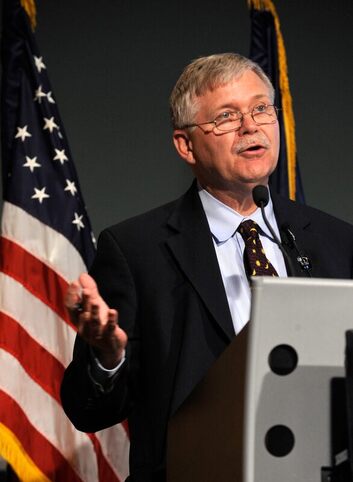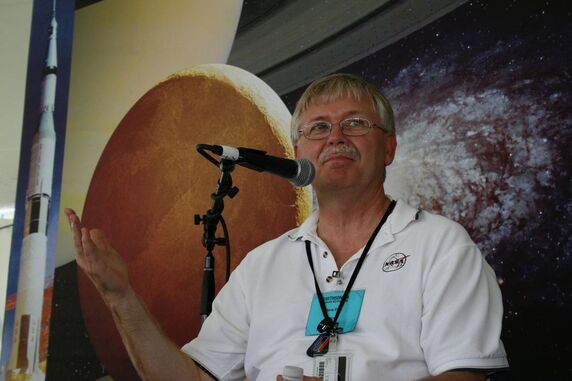WELCOME
Steven J. Dick served as the NASA Chief Historian and Director of the NASA History Office from 2003 to 2009 and, prior to that, as an astronomer and historian of science at the U.S. Naval Observatory for more than two decades. He was the 2014 Baruch S. Blumberg NASA/Library of Congress Chair in Astrobiology at the Library of Congress’s John W. Kluge Center, and in 2013 testified before the United States Congress on the subject of astrobiology. From 2011 to 2012 he held the Charles A. Lindbergh Chair in Aerospace History at the National Air and Space Museum. He is the author or editor of more than 100 articles and 25 books, including most recently Astrobiology, Discovery, and Societal Impact (Cambridge, 2018),Classifying the Cosmos: How We Can Make Sense of the Celestial Landscape (Springer, 2019), and Space, Time, and Aliens: Collected Works on Cosmos and Culture (Springer, 2020). In 2006 Dick received the LeRoy E. Doggett Prize from the American Astronomical Society for a career that has significantly influenced the field of the history of astronomy. He has served as President of the History of Astronomy Commission of the International Astronomical Union, as Chair of the Historical Astronomy Division of the American Astronomical Society, and as President of the Philosophical Society of Washington. Minor planet 6544 Stevendick is named in his honor. In 2012 he was elected a Fellow of the American Association for the Advancement of Science “for distinguished contributions to the history of astronomy and space science, and leadership at the U. S. Naval Observatory and as Director of the NASA History Office.” In 2019 he was named a Fellow of the American Astronomical Society for "achievement and extraordinary service to the field of astronomy and the American Astronomical Society."
Steve is the recipient of the NASA Exceptional Service Medal, the Navy Meritorious Civilian Service Medal, the NASA Group Achievement Award for his role in NASA’s multidisciplinary program in astrobiology, and the NASA Group Achievement Award for the book America in Space. His book Astrobiology, Discovery, and Societal Impact won the 2019 PROSE award for Cosmology and Astronomy from the Association of American Publishers. His genealogy and memoirs were privately published as Stardust Memories: A Dick Family History and Memoir (2019), available here https://repository.aip.org/islandora/object/nbla%3A287576
In addition to his work in history of astronomy, astrobiology, and space exploration, Steve is known for his ideas of cosmotheology, the postbiological universe, and the "Three Kingdom System," the first comprehensive classification system for astronomy. All these ideas are elaborated in the books and articles listed on the following pages.
Steve is the recipient of the NASA Exceptional Service Medal, the Navy Meritorious Civilian Service Medal, the NASA Group Achievement Award for his role in NASA’s multidisciplinary program in astrobiology, and the NASA Group Achievement Award for the book America in Space. His book Astrobiology, Discovery, and Societal Impact won the 2019 PROSE award for Cosmology and Astronomy from the Association of American Publishers. His genealogy and memoirs were privately published as Stardust Memories: A Dick Family History and Memoir (2019), available here https://repository.aip.org/islandora/object/nbla%3A287576
In addition to his work in history of astronomy, astrobiology, and space exploration, Steve is known for his ideas of cosmotheology, the postbiological universe, and the "Three Kingdom System," the first comprehensive classification system for astronomy. All these ideas are elaborated in the books and articles listed on the following pages.
Web Hosting by iPage

